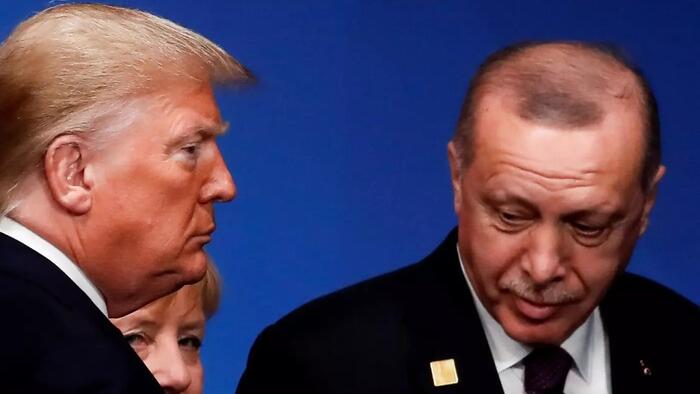As the U.S. presidential election approaches, Turkish leadership in Ankara finds itself divided, grappling to discern the potential impacts of a Trump or Harris presidency on Turkey’s foreign policy. Turkish officials remain unnamed in their assessments, notably expressing that the election’s outcome will significantly alter both Turkey’s geopolitical stance and its relationships with regional powers. There’s a notable expectation that President Recep Tayyip Erdogan is deliberately withholding any major policy decisions, including potential cabinet appointments, until after the U.S. election results are known—a stark contrast to the candid engagements other nations have undertaken during this electoral season.
Public visible engagement between Ankara and the two presidential candidates has been minimal, with Erdogan’s outreach limited to a phone call with Donald Trump after an assassination attempt against the former president. In a somewhat more subtle approach, reports suggested Erdogan’s interest in a meeting with Kamala Harris during the UN General Assembly, which Turkish officials later downplayed. This apparent distancing from both candidates stands in juxtaposition to leaders from neighboring countries, such as the UAE, who proactively engaged with both U.S. nominees amid the election season. Sources suggest that Ankara’s reticence is a calculated strategy rooted in uncertainty regarding which candidate would align more favorably with Turkish interests.
An evolving narrative within Erdogan’s circles indicates a belief that a Trump presidency could be advantageous, given their history of frequent dialogue. This history includes pivotal moments such as Trump’s acceptance of Turkey’s military operations in Syria and lighter sanctions against Turkey for acquiring Russian defense systems. However, despite favorable memories, skepticism lingers among AKP officials about the tangible outcomes of Trump’s presidency, stressing a disconnect between promising dialogues and actionable results. This discontent underscores frustrations around Trump’s ability to deliver on commitments and the volatility of the U.S. administration’s positions throughout his term.
In contrast, some Turkish politicians and officials view a Harris presidency as potentially stable for foreign relations, relying on established bureaucratic processes and expertise from seasoned officials with experience in Turkish affairs. Harris’s foreign policy approach is anticipated to mitigate the erratic shifts experienced during Trump’s tenure, focusing on building reliable partnerships through institutional frameworks rather than personal diplomacy. However, leaders on both sides acknowledge that the relationship has significantly evolved during Biden’s term, particularly with noteworthy cooperative efforts on security matters and NATO expansion, demonstrating a level of bilateral trust previously thought unachievable.
The uncertainty in U.S. elections is compounded by incredibly close polls, leaving Ankara cautious about prematurely aligning itself with either candidate. Historical precedents weigh heavily on Turkish officials, especially considering previous missteps, such as lobbying efforts directed at Trump’s former national security advisor, which negatively colored Turkish influence attempts as comparable to Russian operations. This historical context informs Turkey’s current strategy, which favors prudence and calculated patience rather than overt engagement in the electoral fray. Essentially, Turkish officials appear to be adopting a ‘wait and see’ approach, aiming to avoid repeating past mistakes while preparing to navigate either possible outcome.
In conclusion, as the U.S. election nears, the Turkish government stands at a crossroads characterized by strategic silence and careful observation. The internal deliberations reflect a desire for informed, adaptive foreign policy decisions that respond dynamically to the election’s outcome. The nuanced relationships developed under both Trump and Biden highlight the complexities of U.S.-Turkey relations, suggesting that regardless of who wins, the path ahead will demand astute navigation and perhaps a reevaluation of Turkey’s own foreign policy priorities in alignment with changing U.S. leadership.

